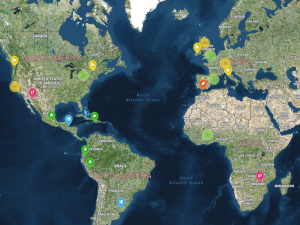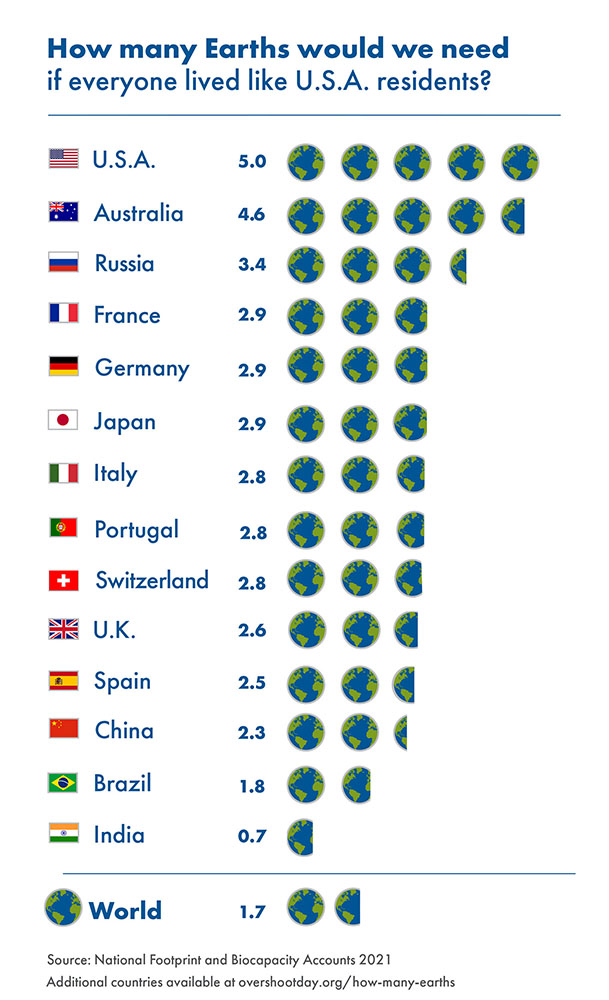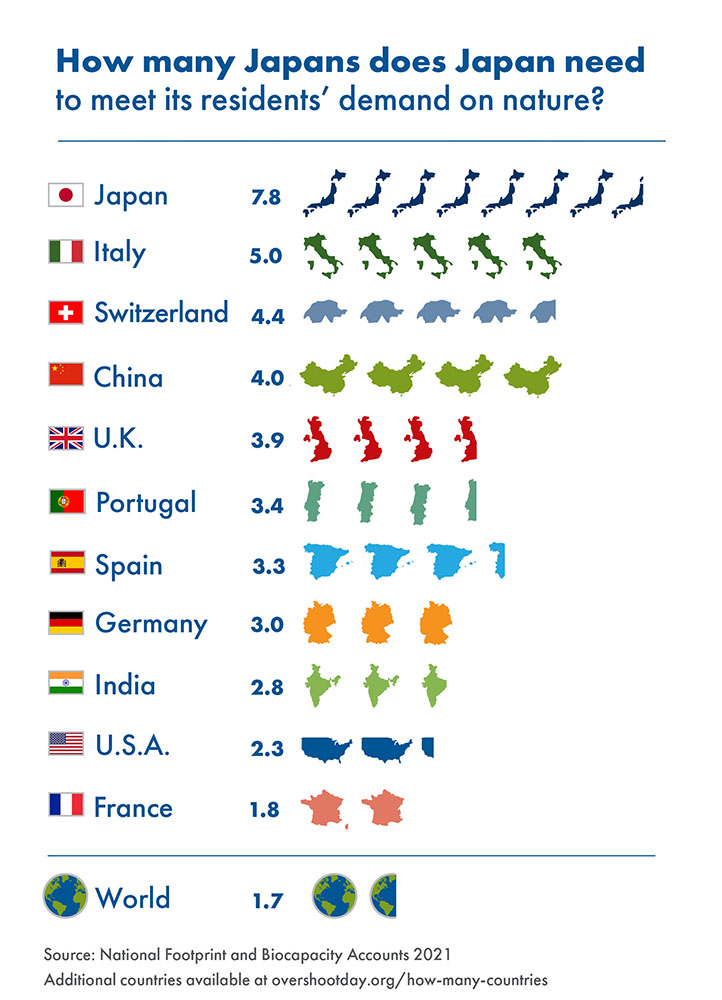

Today is Switzerland’s Overshoot Day
Leveraging business opportunities that #MoveTheDate
May 11, 2021 (Geneva, Switzerland) – Today is Switzerland’s Overshoot Day: if everybody around the world lived like Switzerland’s residents, today would be Earth Overshoot Day, according to the National Footprint and Biocapacity Accounts published by the Footprint Data Foundation, York University, and Global Footprint Network.
From January 1st until today, Swiss residents have, per person, used as much from nature as the planet renews per person in the entire year. Pushing back the date (#MoveTheDate) of Overshoot Days is possible if we re-design our infrastructure, make our processes far more resource efficient, decarbonize our energy systems, sequester excess CO2, and live in ways that require fewer resources.
“Climate change and exploding resource demand around the world are converging into the perfect storm of resource insecurity. ‘Fixing our boat,’ whether that boat is our country, city, company, or our own household, is the most obvious way to improve our own chances for a secure future,” said Mathis Wackernagel, President of Global Footprint Network.
Already, many initiatives exist that are building the bridge to a regenerative future. These initiatives serve as models of what we must expand upon and replicate during the post-COVID recovery. Given the long time-lag of our physical infrastructure – buildings, transport, energy – Global Footprint Network is working with leaders in that sector to identify what steps need to be taken to make them one-planet compatible. Constructing and operating buildings occupies x% of today’s Footprint of Swiss residents. This equates to y% of the world’s biocapacity per person. Together with business leaders in the field, we are evaluating how many days Earth Overshoot Day can be postponed if new technologies displace current resource-intensive processes and building materials.
Ultimately, it will come down to a simple question: Can we act fast enough to effectively design a future where we can thrive in balance with the regenerative budget of nature? Or will that balance be imposed by disaster?
There are many ways to #MoveTheDate. Here are some cool options from around the world. Which ones move and inspire you?

About ecological overshoot
Since the early 1970s, humanity has been in an ecological deficit. While Switzerland’s biocapacity per person is 36% smaller than the world’s, its Ecological Footprint per inhabitant is about three times as large. The overload cannot continue forever. The effects of this global ecological overshoot can already be observed in the form of deforestation, soil erosion, loss of biodiversity and the accumulation of carbon dioxide in the atmosphere. Running an ecological deficit means that we are not only consuming the annual “interest” on our natural capital, but also depleting it by taking resources from the future to pay for the present. Operating on the ecological advances of future generations is obviously not a successful long-term strategy.
About Global Footprint Network
Global Footprint Network is an international sustainability organisation that is helping the world live within the Earth’s means and respond to climate change. Since 2003 we’ve engaged with more than 50 countries, 30 cities, and 70 global partners to deliver scientific insights that have driven high-impact policy and investment decisions. Together, we’re creating a future where all of us can thrive within the limits of our one planet. www.footprintnetwork.org
Media Contact
Laetitia Mailhes
laetitia.mailhes@footprintnetwork.org
+33 650 979 012
Informative Links about the Ecological Footprint
- How the Ecological Footprint works: www.achtung-schweiz.org/en/q-a/
- Ecological Footprint and Biocapacity Accounting – How the national accounts work: oneplanetalliance.org/ecological-footprint/
- Recent data from around the world: data.footprintnetwork.org
- Earth Overshoot Day 2020 press release: www.overshootday.org/newsroom/press-release-august-2020-english/


